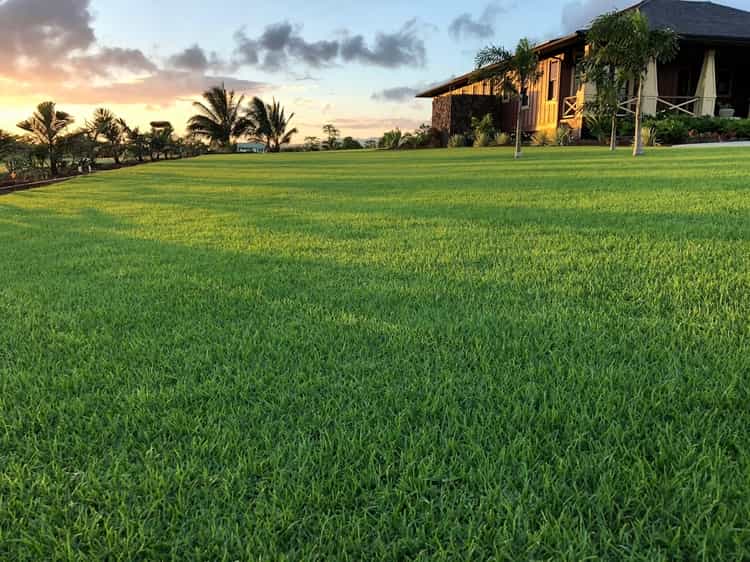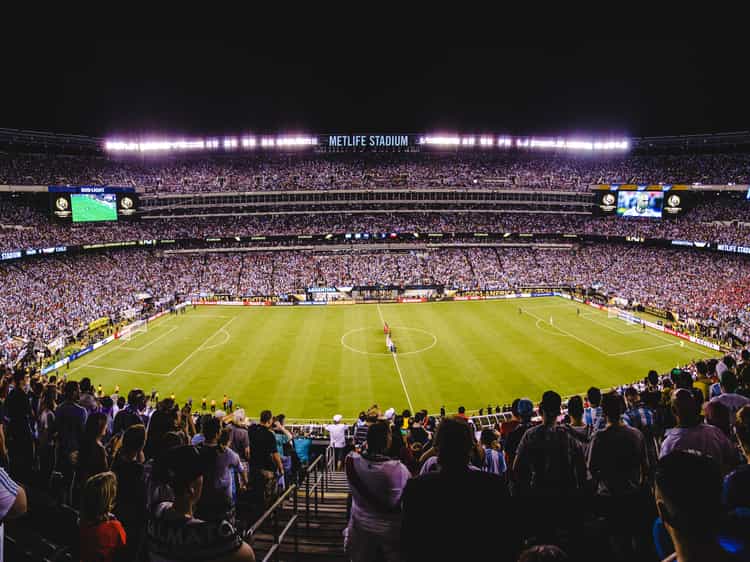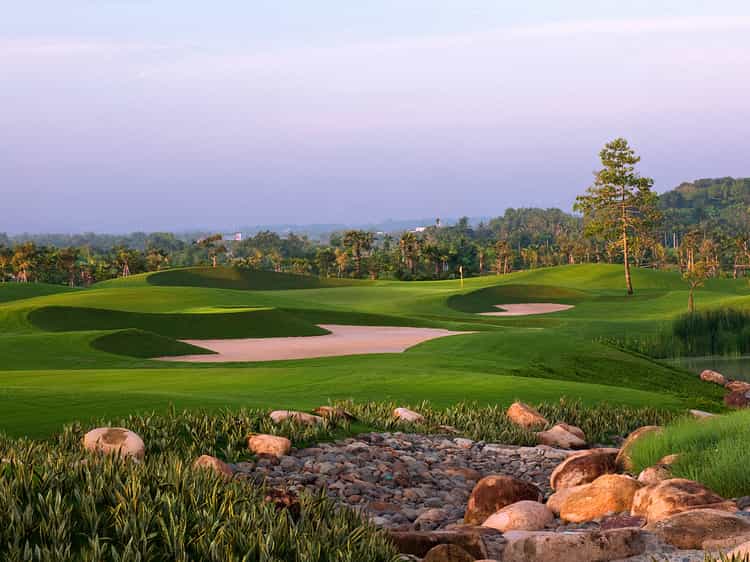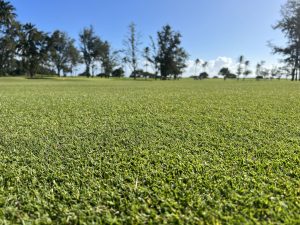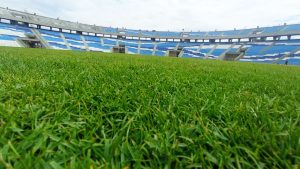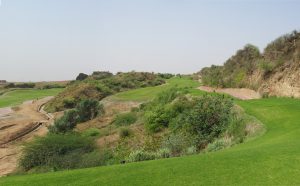Seashore paspalum is a salt tolerant, warm season perennial grass found naturally along coastal regions. It is available in vegetative and seed form allowing for multiple planting option including sprigging, sodding, or seeding.
Paspalum Uses
Golf courses of every kind – municipal, resort, public, private, and championship – select paspalum. With its tolerance for various heights of cut, paspalum is the most adaptable turfgrass variety for golf and can be planted wall-to-wall.
Paspalum’s density, strength, and rapid recovery make it a popular turfgrass for sports fields. Soccer, American football, baseball, rugby, and even horse racing choose paspalum at levels from recreational to professional to world-class competition.
Commercial and residential landscaping projects also frequently choose paspalum.
In the infrastructure arena, projects requiring soil stabilization as well as mining, airports, and roadway jobs utilize paspalum.
A lesser known, but highly effective use of paspalum is for remediation. Seashore paspalum can remove toxic chemicals from soil or water, restoring areas to safe and usable conditions.
Paspalum Advantages
Best known for its salt tolerance, seashore paspalum has earned a reputation for sustainability.
Paspalum outperforms other turfgrasses in its ability to grow and thrive with effluent water irrigation, in sodic soils, and in areas with heavy sea spray.
Paspalum processes salts in a way that is unique among turfgrasses. Bermudagrasses fall at the bottom of the spectrum of salt tolerance. Unable to handle any significant amount, the salts remain stuck to the plant root. Zoysias are more salt tolerant than bermudas but only push the salts upward to the leaf blades. The only way to remove the salts from zoysia turfgrass is to capture and remove the clippings.
Paspalum has quicker root development than bermudagrasses or zoysia. Rapid establishment after sprigging, sodding, or seeding allows paspalum projects to be up and running in record time. For seeded applications, these benefits allow for lower planting rates translating to cost savings.
Paspalum’s unique advantages when it comes to striping are a distinct advantage for sports fields and golf courses. Due to the wax load on shoots (which also gives paspalum its shiny dark green color), one pass of the mower shows striping patterns distinctively while it takes two or more mower passes on bermudagrasses or zoysiagrasses.
Appropriately maintained, paspalum requires less nitrogen than other turfgrasses, with bermudagrass requiring the most, followed by zoysia. Research supports these claims as well as resulting reductions in fertilizer requirements. The environmental benefits of these advantages are a major reason for paspalum’s popularity with projects focused on sustainability.
The low light tolerance of paspalum, superior to bermudagrass and most zoysias, allows it to thrive in conditions where many other turfgrasses fail. Geographic regions with heavy cloud coverage and periods of minimal sunlight find paspalum to be the ideal turfgrass solution. Low light tolerance also makes paspalum the preferred natural grass choice for stadiums where parts of the field receive limited sunlight.
Paspalum’s strong, dense canopy and resulting durability provide exceptional wear tolerance, allowing it to hold up to excessive foot traffic on sports fields and cart traffic on golf courses. With rapid recovery due to dense rhizomes with horizontal growth, divots in paspalum grow back faster than in bermudagrass or slow-growing zoysia.
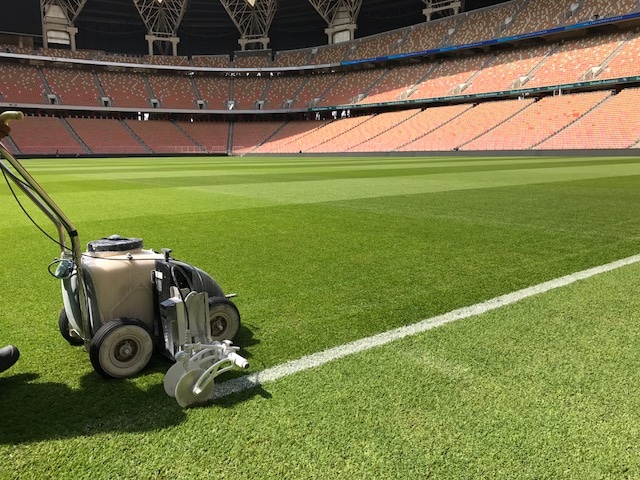
The rich, green color of paspalum provides further advantages in terms of aesthetics and cost savings. Color retention when temperatures drop keeps paspalum greener longer, reducing the need for turf painting and possibly eliminating the need to overseed.
Paspalum Costs
Paspalums generally cost more per meter or square foot than most bermudagrasses and are comparable to zoysias; however, paspalum’s versatility and myriad advantages translate to cost savings over other varieties in many ways.
Some paspalums can be grown tee-to-green allowing for simplified maintenance. The need for separate equipment or frequent equipment cleaning to avoid contamination with other varieties is eliminated. Reductions in planning time and labor requirements needed for multiple varieties translate to additional cost savings.
In areas where water usage is monitored or purchased, paspalum provides significant savings through effluent water irrigation. While all turfgrasses require quality water for irrigation during grow-in, established paspalum is uniquely able to be irrigated with saline or sodic water sources without necessitating extra maintenance practices.
Due to its rapid establishment and faster grow-in, planting rates can be lower for paspalum than zoysiagrass and many bermudas, reducing the number of sprigs needed to plant an area.
Fall color retention can reduce or eliminate the need for overseeding.
Seeded paspalum offers even further cost savings. Lower transportation costs and on-demand planting reduce costs and allow for greater flexibility. With faster grow-in times over vegetative products in many circumstances, seeding can lead to quicker project completion and reduced interference with playing times.
How can we help you today? We are happy to provide you with more information about Paspalum and how they can benefit your golf course or sports field — as well as answer any questions you may have.
John Holmes
President, Atlas Turf
